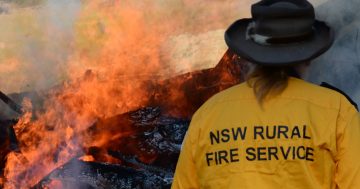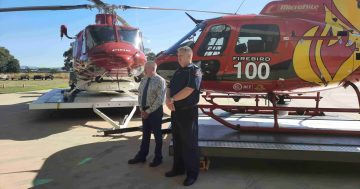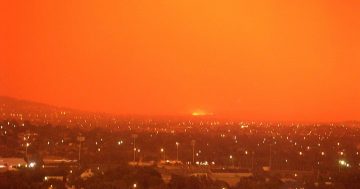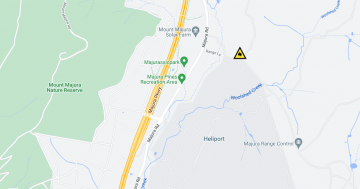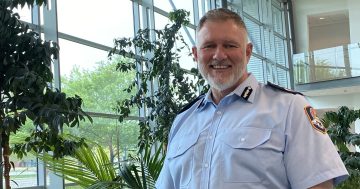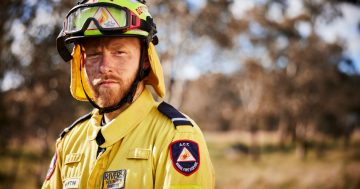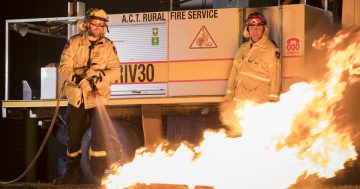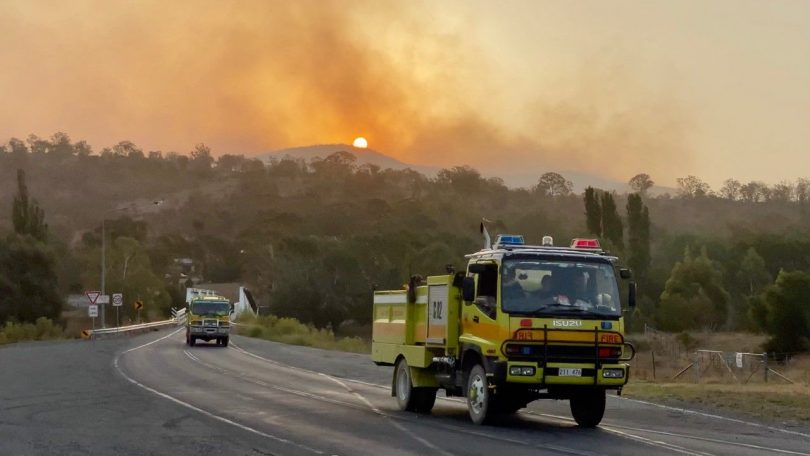
ACT Fire and Rescue crews leave the Orroral Valley fire near Thawra earlier this year. Photo: Gary Hooker.
Poor management of fatigue, the sidelining of firefighting volunteers, inadequate preparation and faulty equipment within the ACT Emergency Services Agency (ESA) will come under scrutiny today as the Assembly commences its Review of ACT emergency services responses to the 2019-20 bushfire season.
Volunteer firefighters in the ACT Rural Fire Service (ACT RFS) have expressed their frustrations at being sidelined and mishandled during the devastating Orroral Valley fire despite being given significant responsibilities, including command roles on interstate deployments.
“Volunteers have lacked a voice in major decisions that affect the service and are demoralised,” wrote veteran ACT RFS firefighter Anura Samara in his submission.
Mr Samara will give his testimony to the inquiry this afternoon.
“Within the ACT we have turned out for shifts to find no tasking at all, or taskings that have changed multiple times.”
Frustration also arose out of the lack of appropriate training afforded to RFS volunteers in the ACT after disjointed training sessions left members unable to fill crucial roles during the fire season, Mr Samara said.
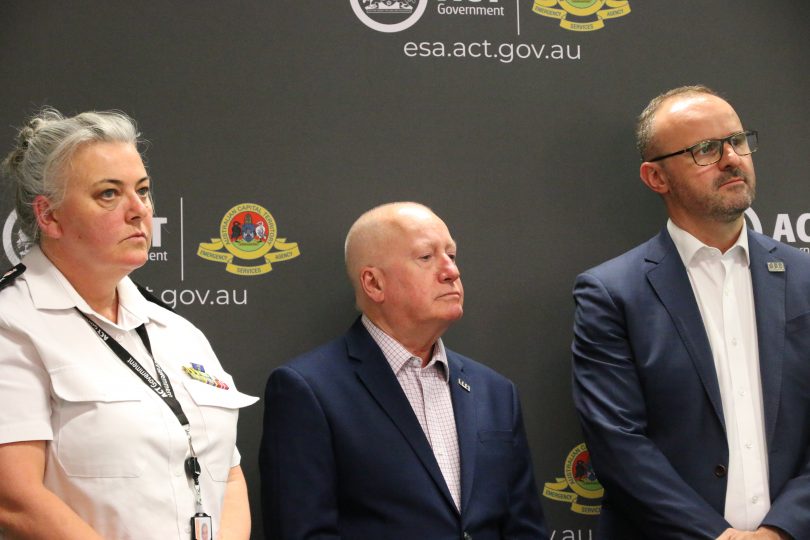
ESA Commissioner Georgeina Whelan (left) has defended the way the ESA handled the Orroral Valley fire. Photo: Dominic Giannini.
“There were occasions when the ACT RFS struggled to fill specific roles for shifts. This was not due to a lack of members, but the limited number of members with the competencies and experience to fill every role while also managing fatigue across multiple shifts,” he wrote.
“This reflects not the composition of the service at the start of the year, but the failure to invest in competencies over a number of years as building competencies requires training and experience.
“Training opportunities often arise at short notice and can be cancelled with no follow-up opportunities available. Throughout my career my attitude has always been to nominate for every training course offered simply because you never know when the next opportunity may arise – will it be next month, next year or never again?”
Accounts from disgruntled RFS volunteers have been disputed by a former superintendent of the force.
The Review of ACT emergency services responses to the 2019-20 bushfire season will examine the ACT’s susceptibility to fire and how the impact of bushfires can be mitigated in the future.
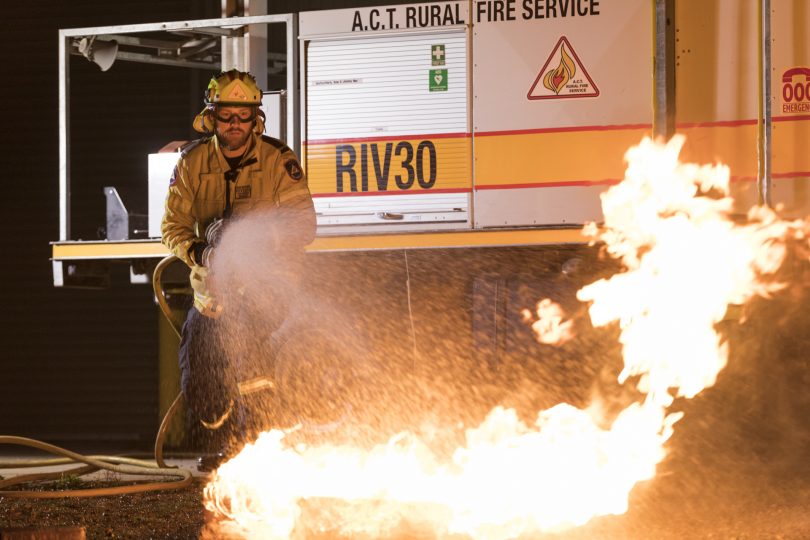
ACT RFS volunteers have criticised the ESA and ACT Government for a lack of training and opportunities within the Territory. Photo: Michelle Kroll.
Over the course of the bushfire season, crews were repeatedly delayed because of mechanical problems with firetrucks and tankers, which were exacerbated by their heavy use during an unprecedented fire season.
“Due to the large number of equipment and vehicle faults, there were consequent delays in getting equipment and vehicles repaired again with an impact on operational capability,” Mr Samara said.
“Despite repeated attempts at repairs over many years, these problems continued under the stress of the long season while some could be overcome with changes to operating practices, some resulted in the complete breakdown of vehicles.
“In some cases, this occurred on the fire ground with an impact on operational capability and potential risk to crews.”
The preparation undertaken by the ESA before the 2019-20 fire season has also come under scrutiny from the Rural Landholders Association (RLA) which will be represented at the Parliamentary inquiry this afternoon by Steve Angus.
The RLA criticised the ESA and ACT Government for failing to adequately incorporate Aboriginal fire control practices, not conducting enough hazard reduction practices and leaving rural landholders high and dry financially when it came to repairing the devastation from the Orroral Valley fire.
“Actions have not met the intent of the [Strategic Bushfire Management Plan] nor sufficiently protected adjacent private farmland,” the submission said.
“For example, boundary line fire trails are not maintained, so access to the park is not possible except through farms and routine management operations, like back burning and pest control, are not generally undertaken beside farmland by government-employed workers.
“The control burns in [Namadgi National Park] for fire fuel reduction before the fire season had not been undertaken to the extent intended, so the risk reduction qualities of landscape-scale mosaic burning had not been achieved.”
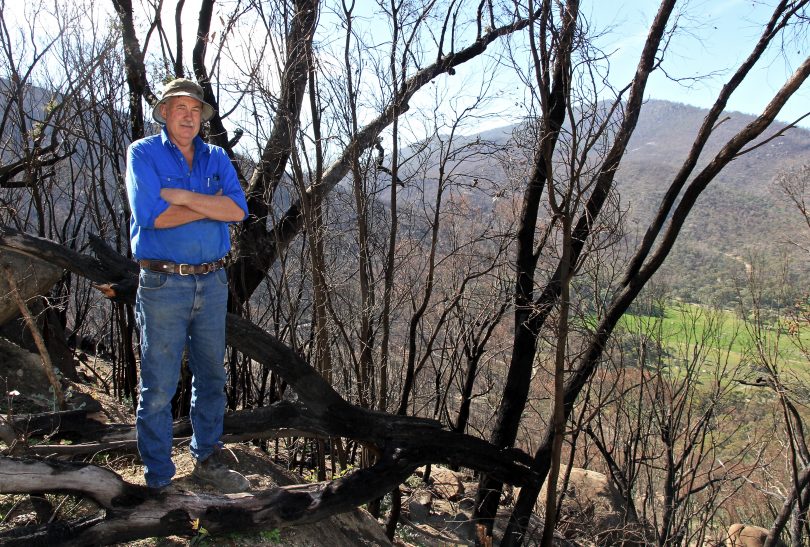
Rural landowner and volunteer firefighter with the ACT Rural Fire Service Steve Angus on the boundary of his property at Namadgi National Park. Photo: Michael Weaver, Region Media.
Mr Angus lost 3-4 kilometres of fencing on his property, of which he will need to repair at his own cost.
“The fundamental resources needed to run a grazing enterprise are pastures and healthy soils, water bodies and fences,” the RLA submission said.
“Their loss through disasters is economically and emotionally devastating, and physically exhausting to repair and replace. Rural landowners had to bear the immediate expenses of feed and fencing to keep their stock separated, out of the reserves and off the roads.
“The majority of farmers have years of work ahead and most of the costs to bear from the fire that started in Namadgi. No ACT Government funded recovery works are planned on fire or flood affected farms, only nature reserves.”
Hearings for the inquiry will begin at 3:00 pm and will be streamed live on the ACT Legislative Assembly website.
Further hearings will also be conducted on 11 and 18 August.












